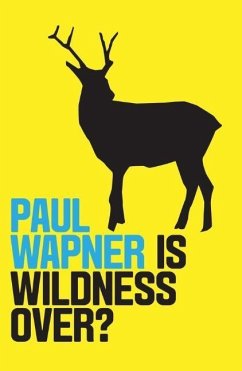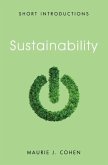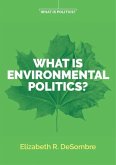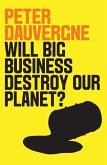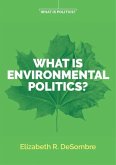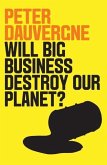Wildness was once integral to our ancestors' lives as they struggled to survive in an unpredictable environment. Today, most of us live in relative stability insulated from the vicissitudes of nature. Wildness is over, right?
Wrong, argues leading environmental scholar Paul Wapner. Wildness may have disappeared from our immediate lives, but it's been catapulted up to the global level. The planet itself has gone into spasm - calving glaciers, wildfires, heatwaves, mass extinction, and rising oceans all represent the new face of wildness.
Rejecting paths offered by geoengineering and de-extinction to bring the Earth under control, Wapner calls instead for 'rewilding'. This involves relinquishing the desire for comfort at all costs and welcoming greater uncertainty into our own lives. To save ourselves from global ruin, it is time to stop sanitizing and exerting mastery over the world and begin living humbly in it.
Wrong, argues leading environmental scholar Paul Wapner. Wildness may have disappeared from our immediate lives, but it's been catapulted up to the global level. The planet itself has gone into spasm - calving glaciers, wildfires, heatwaves, mass extinction, and rising oceans all represent the new face of wildness.
Rejecting paths offered by geoengineering and de-extinction to bring the Earth under control, Wapner calls instead for 'rewilding'. This involves relinquishing the desire for comfort at all costs and welcoming greater uncertainty into our own lives. To save ourselves from global ruin, it is time to stop sanitizing and exerting mastery over the world and begin living humbly in it.
"If the world seems more chaotic to you, this superbly thoughtful book can help explain why, and provide some advice on surfing that new wildness. It will help you see your time through new, sharper eyes."
Bill McKibben, founder of 350.org and author of The End of Nature
"An admirably lucid meditation on the wild. Wapner shows that we subdue every last bit of wildness only at immense peril to ourselves and to all that we hold dear. His conclusion--that we must welcome unpredictability and a modicum of danger back into our personal lives--is bracing and wise."
David Abram, Director of the Alliance for Wild Ethics (AWE) and author of Becoming Animal
Bill McKibben, founder of 350.org and author of The End of Nature
"An admirably lucid meditation on the wild. Wapner shows that we subdue every last bit of wildness only at immense peril to ourselves and to all that we hold dear. His conclusion--that we must welcome unpredictability and a modicum of danger back into our personal lives--is bracing and wise."
David Abram, Director of the Alliance for Wild Ethics (AWE) and author of Becoming Animal

